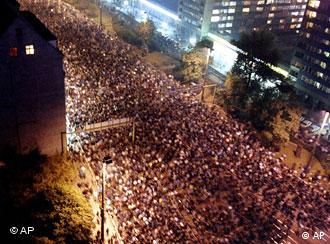Not very long ago, I've started a mini-series dealing with food and its social significance during the period historians call, the early-modern European period (approx. 1450-1800). The first post in this series dealt with the kind of bread people ate at the time (see Flour and Bread crumbs).
Now its time for another post in the series:
Meat and Fish
 |
| via Pinterest |
In the early modern period, meat was an important part of any good diet. Before the late fourteenth century (1300s), meat was a bit of a luxury for the lower social classes and only the nobility ate meat regularly. However, between the late fourteenth century and fifteenth centuries, the European population was drastically reduced as a result of the Black Death. With this came a greater abundance of food and meat became more common for all classes.
After the fifteenth century, there was a population boom again, and meat became more expensive. It was at this time that different kinds of meat began to be divided into social categories. There was now 'lordly' meat and 'lowly' meat - meat for nobles and meat for the lower classes and the peasants - for 'rustical' stomachs.
 |
| via Pinterest |
For example, a veal's or boar's head was considered 'food for princes' and it was usually presented whole with garnishes on a large platter. Fowl, such as game birds, chicken, pheasant, partridge, swan, or peacock, was another kind of meat considered fit only for the nobility for a long time. Birds were close to the heavens and thus fitter for softer and nobler stomachs, it was believed. This was demonstrated at times (usually in the earlier part of the early-modern period) by a pie with live birds inside. The host would tear it open and release the birds into the room. It was a form of dinning entertainment.
 |
| Via insecula.com |
By the sixteenth century, however, fowl became available for the common people, too. The story behind this is quite interesting. It is said that it was King Henry IV of France who decided that every Frenchmen should have the right to eat fowl at least once a week. The nobility were upset, accusing the king of 'democratizing' it. However, it became a common practice in France to eat fowl each Sunday, especially chicken. Soon eating poultry became cheap and common. It was at this time, also, that turkey was introduced from North America, becoming another popular kind of fowl to eat for both rich and poor.
Generally, however, meats eaten by peasants or common people was not considered fit for the nobility to eat. This included, for example, sausages, tough old beef, and salted and preserved meats. Organ meats, such as livers, kidneys, lungs, spleen, heart, and intestines, were particularly associated with peasants. They were were considered tough and hearty and, therefore, better suited to more 'rustical stomachs'.
 |
| via Pinterest |
However, in early modern Europe, especially before the Reformation (in the 1500s) and during the period of the Catholic Counter-Reformation, the Church prescribed between 140 and 160 days per year of abstinence from meat and other animal products, such as eggs, milk, and butter. This period included Lent, Advent, and every Wednesday and Friday. Fish, therefore, succeeded as an excellent alternative, becoming the cultural definition of a meatless diet. However, even fish became divided into social levels, with salted and preserved fish seen as a symbol of poverty and subordination, while fresh fish was seen as a sign of wealth. This was because fresh fish was very difficult for common people to come by, with most of the fishing lakes or rivers 'owned' by the nobility. However, by the late seventeenth and eighteenth centuries, with the ability of fish wagons to transport fresh fish over longer distances, fresh fish became more common and popular.
All this social dividing of the meat and fish began to fall away as time went on and it came to depend more on who could afford what kind of meat or fish to eat.
__________________
References:
Albala, Ken, Eating Right
in the Renaissance, Los Angeles:
University of California Press, 2002, 184-216
Albala, Ken, 'Religion and Food', in Food in Early Modern
Europe, 2003, p. 193-208
Montanari, Massimo, ‘To Each His Own’, in The Culture of Food, Oxford, UK & Cambridge, USA: Blackwell, p.
84-89
'Culinary History: The Evolution of Cooking', Episode 2: 'Feasting
in the Middle Ages' , written by Michele
Barriere and Phillippe Allante,
Jean-Yves Huchet and Nicolas Goldzahl (Executive Producers), VM
Group, 2005
'Culinary History: The Evolution of Cooking', Episode 3: 'The
Delights of the Renaissance', Written by
Michele Barriere and Phillippe Allante, Executive producers: Jean-Yves Huchet
and Nicolas Goldzahl, VM Group, 2005
'Culinary History: The Evolution of Cooking', Episode 4:
'Enlightened Savours' , Written by
Michele Barriere and Phillippe Allante, Executive producers: Jean-Yves Huchet
and Nicolas Goldzahl, VM Group, 2005
































